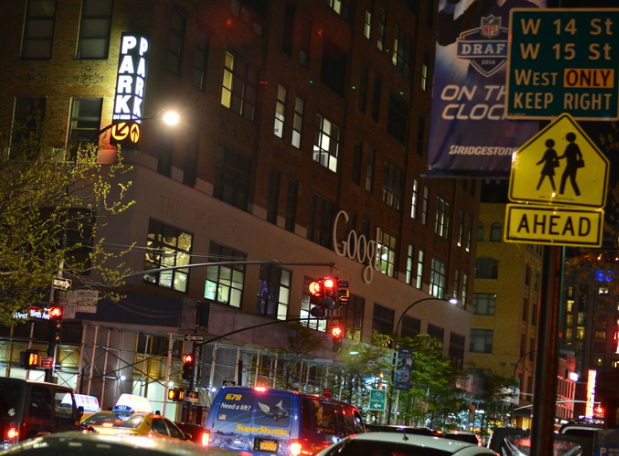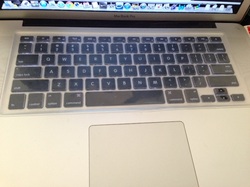|
9/9/2014 0 Comments Imagination & Knowledge Boston Harbor, just a few miles from MIT & Harvard Boston Harbor, just a few miles from MIT & Harvard A few hours from now, Apple is set to announce the latest update to its iPhone. As always, there is much anticipation associated with this event. There is much speculation that a watch based on the iOS platform will be released as well. The assumption is that if this is indeed the case, it will simply be called the iWatch. Many have suggested that it will have health-related features as well. It's hard to believe that the iPhone has been around for only seven years, given how much the iPhone and other smartphones have taken a hold on the world's imagination and knowledge. That is perhaps the key to the iPhone's phenomenal success. In the palm of your hand, you have not only an encyclopedia full of information, but a seemingly infinite source of creative options, as well as access to libraries, colleges, museums, newspapers, and even social networks around the globe. Everyone knows iTunes for its access to one's favorite music and perhaps movies as well, but a lot of knowledge is disseminated through podcasts and iTunesU, where colleges may post course material for the world to see. On the internet, some of the great universities of the world have teamed up to offer Massive Open Online Courses, often referred to by their MOOC acronym. With a MOOC, anyone can register to take a college-level course, either just to learn or for a certificate. My alma mater, the Massachusetts Institute of Technology (MIT), has teamed up with another college in Cambridge, Massachusetts to offer the edX MOOC to the world. The MIT-Harvard program joins these two wonderful universities with other great universities around the world. Speaking of MIT, a small news item yesterday caught my attention. Apple is leasing space, apparently for its voice recognition team, in an office building at the end of the MIT campus, a short distance from Harvard and from Boston. Will today's product announcement be limited to a new iPhone? Will it include a game-changing device, much as the iPad did back in 2010? Will it add to the product mix a less popular but nice gadget such as the Apple TV? Or will it be something that we have not yet imagined? Of course, there has been a lot of hype about today's announcements. In a few hours, the world will find out if the hype was too much or not. But when it comes down to it, the iPhone and similar products package imagination and knowledge into a device that fits in the palm of your hand. Interestingly, the late Steve Jobs became Disney's largest shareholder when Pixar was sold to Disney. The creative force behind the Disney parks is comprised of innovators called "Imagineers". Again, it is a matter of imagination and knowledge working together.
0 Comments
 Airlines offering entertainment via mobile devices Airlines offering entertainment via mobile devices Are we there yet? If you are flying on Delta, you can now check on your iPhone or iPad to see where your flight is. And that is not all that the app does. You no longer need to pay to see a movie or TV show on your flight. The app allows you to select your favorites and watch them at no charge. (There are additional charges for select premium content.) Delta is not alone in this endeavor. United this past Spring updated its apps to offer passengers access to its in-flight entertainment. Hawaiian Airlines has been offering passengers iPad Mini's for about a year, although at a fee for most. Australia-based Qantas has been providing passengers with access to customized iPads. It makes sense that this trend will increase in the near future. Undoubtedly, the vast majority of passengers have a smartphone or tablet with them as they travel. There is little reason to pay a fee for in-flight entertainment options. From a competitive standpoint, it seems intuitive that integrating the airline apps with the passengers' devices will make for a more pleasant experience and, ideally, result in more return customers. There is probably a cost, perhaps significant, to make the switch from the "old school" entertainment options. It seems, however, that Delta, United, Hawaiian, and Qantas have already made the judgment that passengers prefer using their mobile devices.  NYC held parade in 1969 for Apollo 11 astronauts, just a few miles from where Google offices are now located. You can Google it! NYC held parade in 1969 for Apollo 11 astronauts, just a few miles from where Google offices are now located. You can Google it! Growing up in Brooklyn in July 1969, I remember the days when our family gathered around the single black-and-white television to watch the landing on the moon. In this case, it was probably downstairs with my grandparents, because my parents were on their way to The City (aka, Manhattan) for the birth of my youngest brother. That was a pretty exciting year for my family and for the Big Apple. One of my older brother's Bar Mitzvah was on the weekend the Jets won their one and only Super Bowl, against the Baltimore Colts, led by Joe Namath. The Mets would follow in October with their first World Series win, versus the Baltimore Orioles, with a pitching staff that included Tom Seaver and Nolan Ryan. Flash forward to 2014. You can get a ton of information about the moon landing and future space exploration on the internet. The web also is a treasure chest for sports statistics enthusiasts. Google works wonders for researching both. Most households now have two or more color televisions, and in many cases smartphones and tablets allow viewers to access programming on their mobile devices as well. This all leads to the question about how older seniors are adapting to the new technological choices. According to the Pew Research Center, seniors have tended to embrace the technology up until around age 75, then usage tails off due to health and other factors. Interestingly, tablets and e-readers are the devices of choice among seniors — perhaps because the screens are more reader-friendly and larger than on smartphones. Here are some noteworthy items from the Pew study:
Interestingly, when Apple last week announced new upcoming features for its operating systems, the ability to answer iPhone calls on a Mac or an iPad was mentioned. It will be interesting to see if this increased user-friendliness will resonate with seniors in new ways.  Following up the Black Friday note below, the results of Cyber Monday are in and retailers would appear to be quite pleased with the results. According to real-time data collected for the Cyber Monday Report 2012: IBM Digital Analytics Benchmark, online sales skyrocketed 30.3% over the same day in 2011. Some 18% of consumers used a mobile device to view a retailer's website, and mobile sales represented about 13% of all sales. While these numbers in and of themselves might not seem high, both figures are up very significantly over 2011. At 11:25 a.m. (ET) on Cyber Monday, sales reached their peak for the day, but there were strong sales as well after commuting hours. According to IBM, consumers used a "multiscreen" shopping technique, simultaneously finding the best bargains in store, online, and/or on a mobile device. As with Black Friday, iOS devices (iPhone and iPad) led the way for mobile shoppers. The message here would appear to be that any consumer-facing company - whether in retail, financial services, manufacturing, or some other area - should focus on giving the customers what they want in the format they prefer. Paying attention to consumer preferences appears to pay off with increased sales. With many more consumers looking to purchase smartphones and tablets for the foreseeable future, it is important for businesses to take note of this trend. 11/26/2012 0 Comments Not a Cyber Monday Sale HAPPY THANKSGIVING!! If you check your Inbox today, it probably seems that every other e-mail is from a retailer advertising its Cyber Monday sale items. This followed last week's frenzy for Black Friday. There was even a new promotion added this year - Small Business Saturday. If all of these events help to get our economy back on track, that should be a good thing, although it shouldn't be at the cost of near-riots as people line up to get into stores in the middle of the night. Why do we even have Cyber Monday? The answer to that probably lies in the ways most people are now connected. Although there has been a decline in personal computer usage, mobile devices - particularly smartphones and tablets - continue to reach new heights. You can shop in the comfort of your own home at any time of the day or night. You can shop while commuting on a train (if you have a decent signal). You don't have to deal with traffic and hazardous weather conditions. It is probably safer to securely transmit your credit card information than to have someone standing behind you in a crowded store. The impact of Cyber Monday should become apparent in the next day or two as retailers report on their sales results. Just looking at Black Friday, as well as the stores that opened on Thanksgiving Day itself, we see the tremendous impact mobile shopping is having already. According to Black Friday Report 2012: IBM Digital Analytics Benchmark, online sales on Thanksgiving Day were up 17.4% over 2011, while Black Friday sales were up 20.7%. Use of a mobile device to view a retailer's website jumped from 14.3% in 2011 to 24% in 2012. Mobile sales increased from 9.8% to 16%. The iPad was the preferred mobile device for online shopping (10%), followed by the iPhone (8.7%) and Android (5.5%). For those using tablets, the iPad accounted for nearly 90% of online shopping traffic. Without a doubt, iPads (including the new iPad Mini), iPhones, Kindle Fires, and Nooks, among others, will be popular gifts this holiday season. It would seem highly probable that these trends will continue to gain momentum for the foreseeable future. |
Blog Author - Ken FelsherWith over 25 years of writing, editing, and research experience. I enjoy sharing with my readers my love of working with content on a variety of subjects. CategoriesAll 9-11 Airline Apollo 11 Apple Baseball Black Friday Boston Cable Cambridge Ceo Cooperstown Cyber Monday Cyber-Monday Delta Derek Football Freedom Tower Hall Of Fame Harvard Hawaiian HBO Hulu Hurricane Sandy Ipad IPhone IWatch Jeter Marissa Mayer Megatrend MIT Mobile Netflix New-jersey One World Trade Center Personal Computer Qantas Schlep Factor September 11 Smartphone Social Media Tablet Twin Towers United World Trade Center Yahoo Yankees Archives
January 2016
|

 RSS Feed
RSS Feed